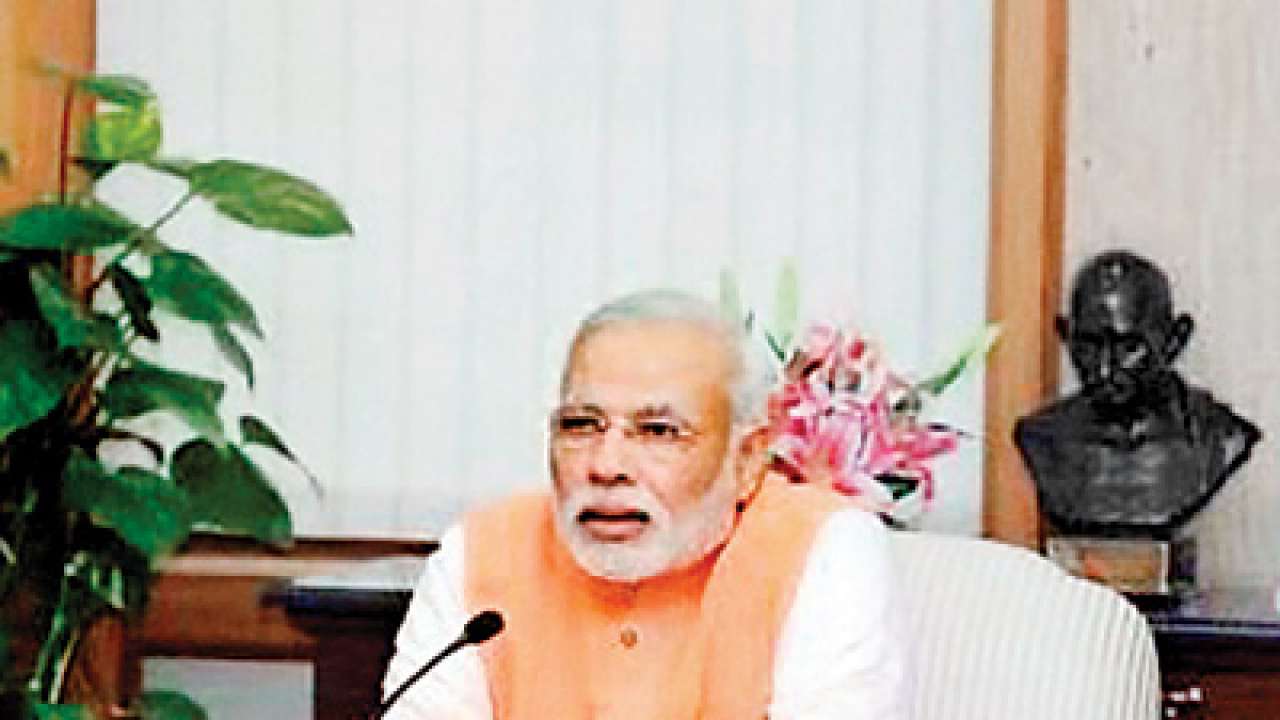
The United States of America is seemingly leaving no stone unturned to establish friendly ties with India's new Prime Minister Narendra Modi. In March 2005, the US state department had revoked Modi's visa due to his alleged role in the 2002 riots in Gujarat. But ever since Modi won a landslide victory to become the Prime Minister, there has been growing pressure on the Obama administration to issue Modi a visa.
Now, apart from Bill Clinton and John Kerry recently speaking in favour of Modi, the United States has even dropped Modi's name from the Religious Freedom Report and it seems like the US is making every effort to woo Modi. Here is a list of five things that the US has recently initiated to establish a friendly alliance.
1) Barack Obama's personal phone call and invitation
Just a week after Modi was declared the Prime Minister after the 2014 Lok Sabha elections, US President Barack Obama called Modi personally to congratulate him on the BJP's victory. He also spoke about working towards the establishment of a US-India partnership.
Hours before the call, the Obama administration also made it clear that Modi would be welcome in the United States, thus extending an invitation and indicating that the visa denial was all in the past. Modi was invited to visit Washington at a mutually agreeable time.
2) Bill Clinton's visit: "I was impressed with Modi's economic policies"
Former United States President Bill Clinton visited India in July this year to promote the core values of the Clinton Foundation and highlighting key social issues. However in the bargain, in his interview with a television channel, he couldn't stop singing praises in favour of Narendra Modi.
"I was impressed with Modi's economic policies," Clinton said. Further elaborating on economic and social policies in India, Clinton added, "India has been able to preserve a more inclusive democracy even in poorer places." He also touched upon the visa controversy and said, "Leave the Gujarat sectarian violence in the past."
3) John Kerry's visit : “We will welcome him”
US Secretary of State John Kerry flew down to Delhi on Wednesday to hold a dialogue on Indo-US relations. Besides meeting Finance Minister Arun Jaitley and Minster of External Affairs Sushma Swaraj, Kerry also took the opportunity to speak in favour of Modi.
Ahead of the visit, he endorsed Modi's “Sab ka Saath, Sab ka Vikas” as a great vision. Again following the same pattern as Clinton, Kerry in an interview with a television channel said that the visa was denied by a different government, “We will welcome him,” he said.
Read More: Indo-US Strategic Dialogue LIVE: US Secretary of State John Kerry meets Arun Jaitley, Sushma Swaraj
4) Growing chorus to address the Joint session of the Congress
Since the last three decades, there has been a tradition of Indian Prime Ministers addressing the Joint session of the Congress in the United States. In the struggle to convince Narendra Modi to talk, four top American Senators spoke to him personally. Also, as many as 83 US lawmakers signed a letter asking House of Representatives Speaker John Boehner to invite Prime Minister Narendra Modi to address a joint session of the Congress.
"The voices in Congress are growing, and the message is clear: the United States and India have a unique relationship based on shared democratic values. Prime Minister Modi's visit is an opportunity to further expand this relationship," said Congressman Brad Sherman.
There was also a demand to nominate an Ambassador to India and to develop a clear strategic plan for its relationship with the country.
5) Religious Freedom Report
The US Religious Freedom Report annually describes the religious freedom in every country. It includes government policies violating religious belief and practices of groups, religious denominations and individuals. Modi was referenced as allegedly holding responsibility of the communal rights in Gujarat in 2002, but not any more.
Read More: US drops PM Modi's name from its religious freedom report
According to Zee News, the latest report refers to slain Congress MP Ehsaan Jafri's widow Zakia's consistent attempts since 2006 to register a complaint against 60 officials of the Gujarat government for their alleged role in the violence in 2002. This year's report goes on to say, "After years of investigation, the SIT (Special Investigation Team) decided in 2012 not to pursue any charges. In December (2013), a magistrate court rejected a protest petition filed by Jafri and upheld the SIT decision. Jafri said she intended to appeal to a higher court." Thus removing Modi's name from the Religious Freedom Report and erasing his alleged role in the 2002 communal riots history once and for all.
Also watch: US drops PM Modi's name from its religious freedom report
Narendra Modi is slated to visit Washington in September to meet Obama and address the UN General Assembly.